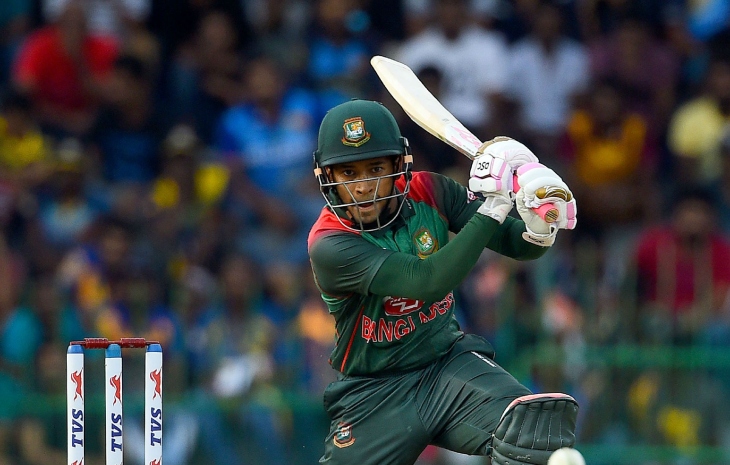Bangladesh skipper Najmul Hossain has shown unwavering support for senior players Mushfiqur Rahim and Mahmudullah, even after their disappointing performances in a crucial Champions Trophy match against New Zealand. The team faced an uphill battle after suffering a six-wicket defeat in their opening game against India, which ultimately led to their exit from the tournament following another five-wicket loss to New Zealand.
Mahmudullah made his return to the playing XI after overcoming a calf muscle injury but could only muster four runs. Meanwhile, Mushfiqur managed a mere two runs. At one point, Bangladesh was positioned at 97/3, and the expectation was that the seasoned pair would guide the team to a competitive total. However, their failures were particularly disheartening, especially after young Towhid Hridoy had just fallen while attempting a risky shot against off-spinner Michael Bracewell.
Bracewell proved to be a game-changer, tearing through the middle order with impressive figures of 4 for 26, punishing Bangladesh for their poor shot selection. Mushfiqur, who hadn’t scored an ODI fifty since March 2024, tried to turn the tide by slogging against a delivery tossed outside off-stump, only to find Rachin Ravindra waiting at deep mid-wicket.
The pressure then shifted to Mahmudullah, who had been in good form with four fifties in his last four ODI innings. Unfortunately, his dismissal was equally disappointing. He charged down the wicket in an attempt to clear the ropes, only to edge the ball to short third man, where William O’Rourke made an easy catch.
There were questions raised about the decision to drop Soumya Sarkar to accommodate Mahmudullah, especially since many felt that the experienced players were selected automatically despite their form. However, Najmul disagreed with that notion.
“There’s no automatic selection in this team,” Najmul said when asked if the senior cricketers were indispensable. “Soumya bats at the top, while Riyad (Mahmudullah) bats in the lower middle order. If Soumya played, we would have had to shuffle our batting order significantly. Riyad bhai’s recent performances made him important for us.”
Najmul also emphasized that he wasn’t overly concerned about Mushfiqur’s recent struggles. “His wicketkeeping is crucial for us. Over the years, he has made valuable contributions. Yes, he may have failed recently, but he can bounce back in the next match,” he noted.
The captain didn’t want to single out the two seniors, stressing that the entire team underperformed. “We didn’t play well as a batting group. It’s not about expecting too much from seniors. We simply didn’t perform well collectively,” he added.
Najmul highlighted that Bangladesh had wasted 179 dot balls in their innings, which significantly hindered their ability to score runs and maintain momentum. “We could have batted better against Bracewell. We made some poor shot selections. If we had planned better, we wouldn’t have lost so many wickets,” he admitted.
The disappointment of an early exit weighed heavily on Najmul, who called for a change in approach, particularly regarding consistently scoring 300-plus totals. “We need to improve in all areas. Sometimes we bat well at the top, sometimes in the middle, and our fielding also fluctuates. It’s a confusing situation. If we play together, we can perform well in tournaments like this,” he remarked.
“It’s disappointing as a captain. Our bowling unit has been performing well, with quality fast bowlers and spinners. We have even managed to include a wrist-spinner. But as a batting and fielding unit, we have much to work on. We keep making the same mistakes, and it’s time to focus on how to enhance our batting,” he added.
When discussing changes, Najmul made it clear he wasn’t advocating for changing players frequently. “We need to change our mindset and take responsibility while batting. Constantly swapping players disrupts their rhythm. We must back our resources and accept accountability,” he stated.
Najmul stressed that the team’s public goal of winning the Champions Trophy did not add pressure. “Every player came here with that dream. If we don’t dream big, how can we compete? We didn’t come just to participate; we came to win. Although the results didn’t go our way, we still have one match left, and we must focus on performing well,” he concluded.
Bangladesh will conclude their Champions Trophy campaign with a final group-stage match against Pakistan on February 27 in Rawalpindi. The outcome of this tournament could also signal the end of the senior players’ ICC careers, given their age and current form.

